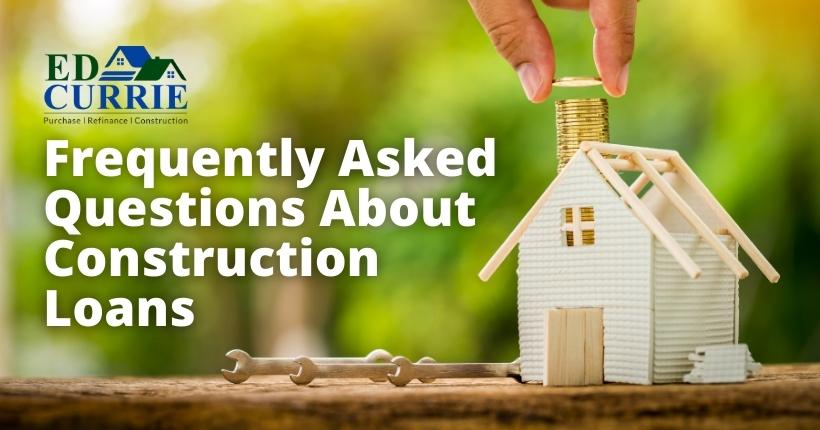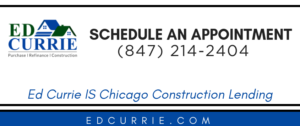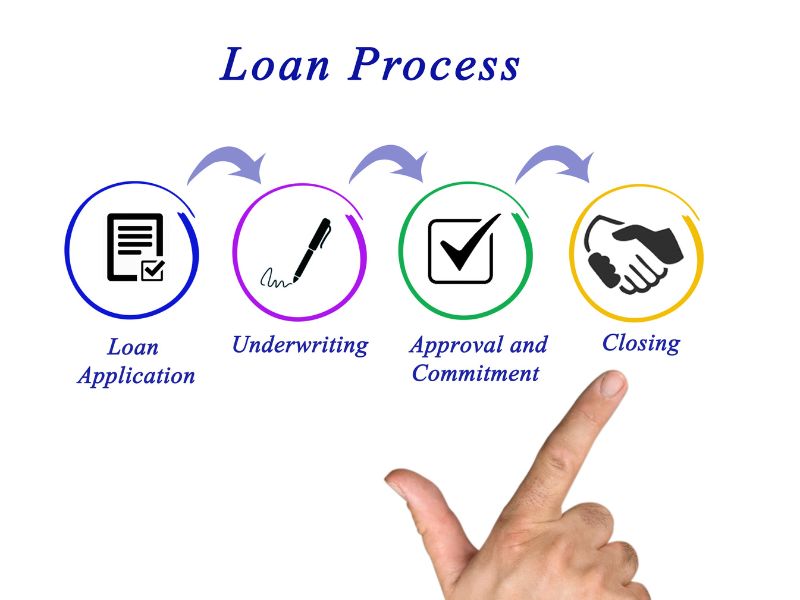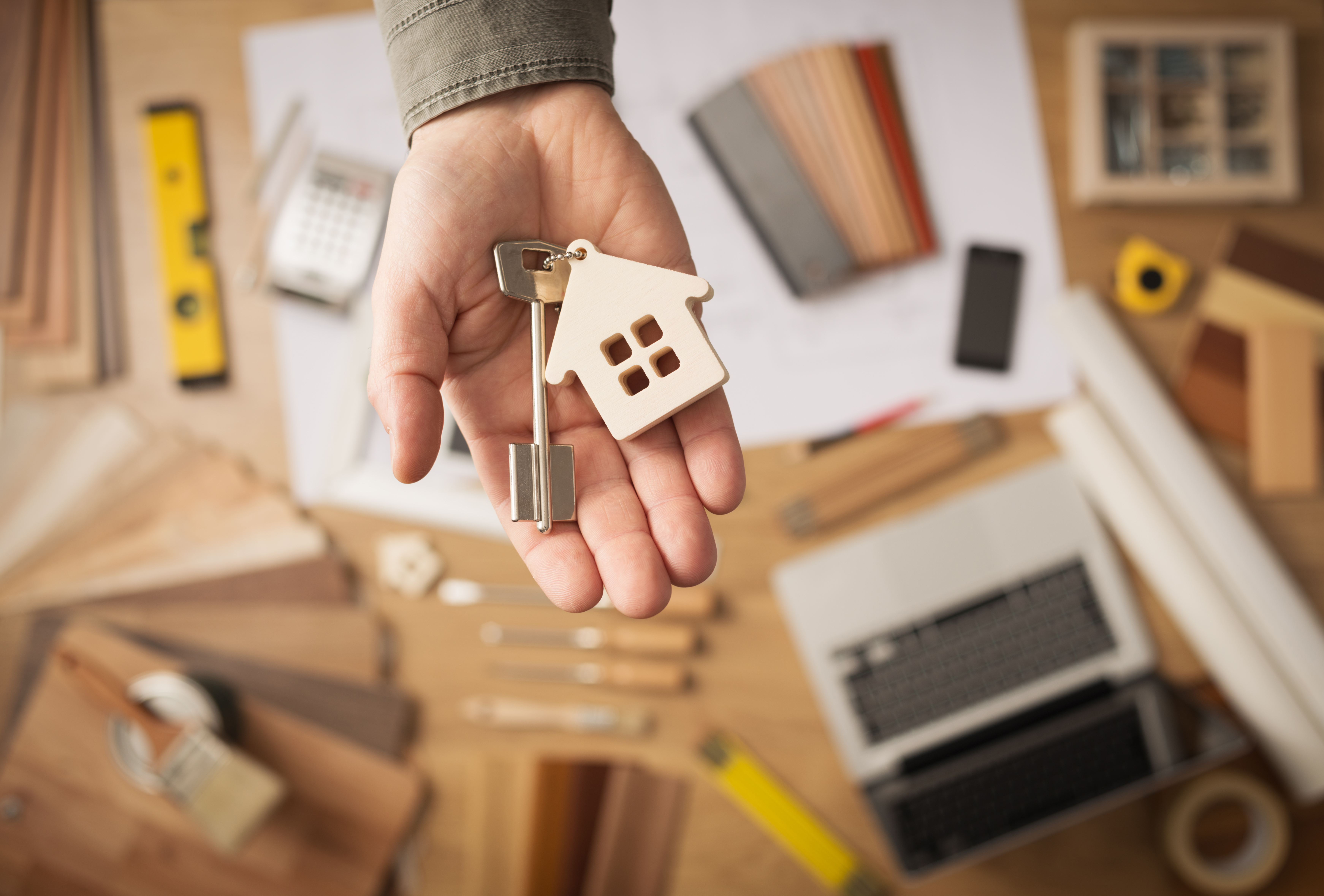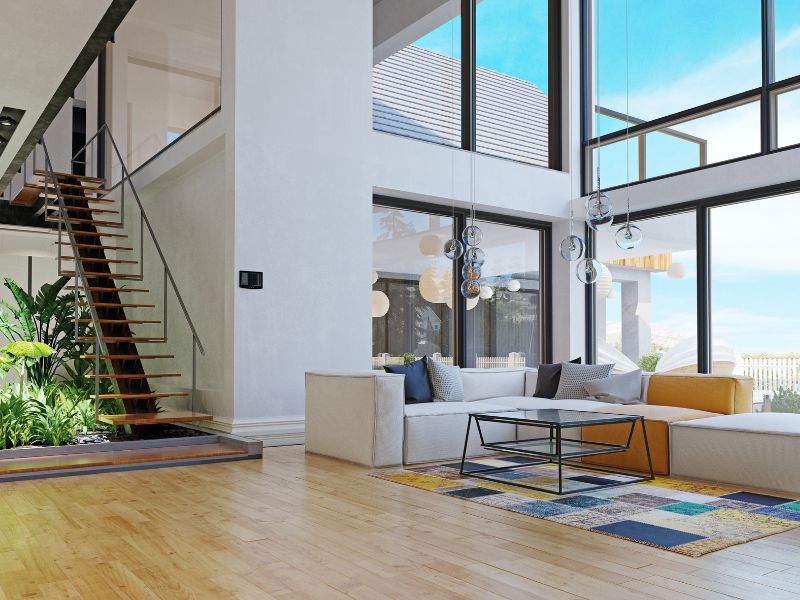Whether you’re building a new home from plans or making renovations on an existing structure, the construction loan process can be complex. At Ed Currie, our goal is to make it as easy as possible, so we’ve created this guide of the most frequently asked questions. You can also feel free to call us at any time at 847-214-2404. We’re happy to answer your questions!
How Long Can I Be In The Construction Phase?
The construction phase is the period your home is under construction. Once your home is complete, the loan moves to the permanent phase with payments of principal and interest.
Every construction phase is initially set up for 12 months. We would like the project to be completed within that 12-month timeframe. That said, we know that larger projects need more time and delays can occur in construction. If more time is needed, the construction phase can be extended by request.
Program Types
We offer two different programs for construction loans. The construction loan program options are very similar to a “regular” mortgage. You can choose a 30-year fixed as well as long-term ARM options like a 10/1, 7/1 or 5/1.
You choose the program and lock the rate before you close and start the project, so the program and rate you choose is what your payments are based on during and after construction. During construction, the payments are interest-only on the balance you owe and principal and interest after construction is complete.
For the Fannie Mae Homestyle Program, the only program option is a 30-year fixed with payments principal and interest on the full balance starting with the first payment.
How Long Will It Take to Close?
Everyone’s timeline will be different. Putting the appraisal aside, it generally will take a week or two to get the loan approved. The approval of the loan will work concurrently with the appraisal process.
The single biggest item that impacts how long it takes to close on your construction loan is when adequate plans and a budget are available.
Because the construction loan appraisal is based on the plans and specs of the project, the appraiser cannot begin until those are available. You want to give yourself 30 days from when the plans and budget are available to order the appraisal before you close your loan.
The things that will have the biggest impact on how long it takes to close your construction are:
- How long will it take to get all the supporting items needed
- When the plans and budget are done to order the appraisal
- How long will we sit in underwriting queue for approval
- How long will the appraisal take
- Will we have any appraisal delays or issues
- The dreaded “unexpected”
Issues above aside, if everything goes as planned and we can order the appraisal right away or early in the process, the typical start to close timeframe can be 30-60 days.
If we can get all we need from the client right away and order the appraisal, we will be closer to the 30-day time frame. If it takes a while to get items from the client and the appraisal cannot be ordered for a while, it will be closer to 60 days or longer. We have had a few clients that have taken a year to close due to delays in plans and changes in builders and budgets.
Can I Start Construction Before I Close?
Generally not. Starting before you close on the loan can cause issues with title. You will want to have a conversation with your loan officer before you start any work on the property if it may occur prior to the loan closing. It could cause significant issues and NOT allow you to close on the construction loan.
Other items to consider if you are looking to start construction ASAP
Permits: Permits are not required to close but are required at the first draw. Be very sure those are available by that time, otherwise there will be a delay in processing the draw payouts until received.
Approval: Until you have an unconditional loan approval, there is a chance your loan may not be fully approved and able to close. While a good loan officer can give great guidance on any possible issues, the reality is there are items that can pop up unexpectedly that could derail the loan and closing. Be sure the appraisal is back as that can have a huge impact on the loan as well as provide you a conditional loan approval.
Costs Paid Prior to Closing: If there are any costs paid in connection with the project, be sure to document it with paid receipts, lien waivers, and copies of your check(s). A deposit to a builder would be common in these situations. It is not recommended to pay any sub-contractors directly. If you do, make sure to get the same documentation. If you provide your builder with deposit funds and want to be reimbursed once the loan closes, this documentation will need to be provided to the title company and to the lender.
“Pre-Starts”: A “pre-start” is generally when a lender is coming into finance a project that has already started and is in process. People have been paid and work has been completed. Lenders generally won’t provide a construction loan on a project that is already underway.
Can I Switch Builders After My Loan Closes?
It is possible, but the process to switch builders after you close (and before completion) can be quite time-consuming. The most common reasons homeowners want to switch is due to disagreements on costs and excessive delays.
When a homeowner wants to change builders, both the lender and the title company will have certain requirements. The title company will generally require the original builder to provide a final lien waiver stating they are owed no additional funds. When there is a disagreement of costs, that can be difficult to obtain from the builder. The homeowner will want to make sure all disagreements regarding costs have been worked out with the original builder. Without the final lien waiver, the project may be halted until one has been obtained.
The lender will want to review the new paperwork from the builder- a signed contract and budget. If the budget has increased, the homeowner will need to bring in more funds before the project can continue.
Will You Re-Pull My Credit After I Submit My Application?
It depends. Credit reports are good for 120 days. If you apply and close within that time, a new hard pull is not needed. Oftentimes, the plans and budget take longer than expected and the appraisal order is delayed months. If that occurs and you won’t be able to close within 120 days of the initial credit pull, new credit must be pulled.
Regardless of how long it takes to close, all lenders do monitor credit while an application is in process. Any new, hard credit pull will most likely notify us of a potential new loan and we will need to document it. It is very important to NOT inquire about new credit or run up your credit card balances during the loan process.
A soft pull does not re-pull credit scores and does not count as an inquiry on your credit.
Can I Build My Own Home Myself?
Generally, no. The program is generally geared toward people who hire professional licensed builders to build or renovate their home. It takes a lot of time and knowledge as well as solid relationships with sub-contractors to effectively and correctly build a home much less a good one. So unless you are a professional licensed builder building your own primary residence, you will need to hire someone.
For full-time general contractors and builders who want to build their own home, it is possible to do that with the program as long as some additional restrictions are met.
What Type Of Multi-Unit Projects Are Allowed?
The types of projects that are allowed for a construction loan will vary based on the program. Our portfolio program allows for construction to build or rehab a one or two-unit property that you intend to live in as your primary residence. The property can be an existing 3 or 4-unit building as long as the scope of the project will convert it to a one or two-unit property once complete.
On the Fannie Mae Homestyle Program, in addition to one and two-unit owner-occupied properties, three and four-unit owner-occupied properties are allowed as well as one-unit investment properties. The Fannie Mae program only allows for rehab and not brand new builds.
Neither program is geared toward builder spec of flips. Our programs are primarily geared toward homeowners looking to build or rehab a home to live in.


